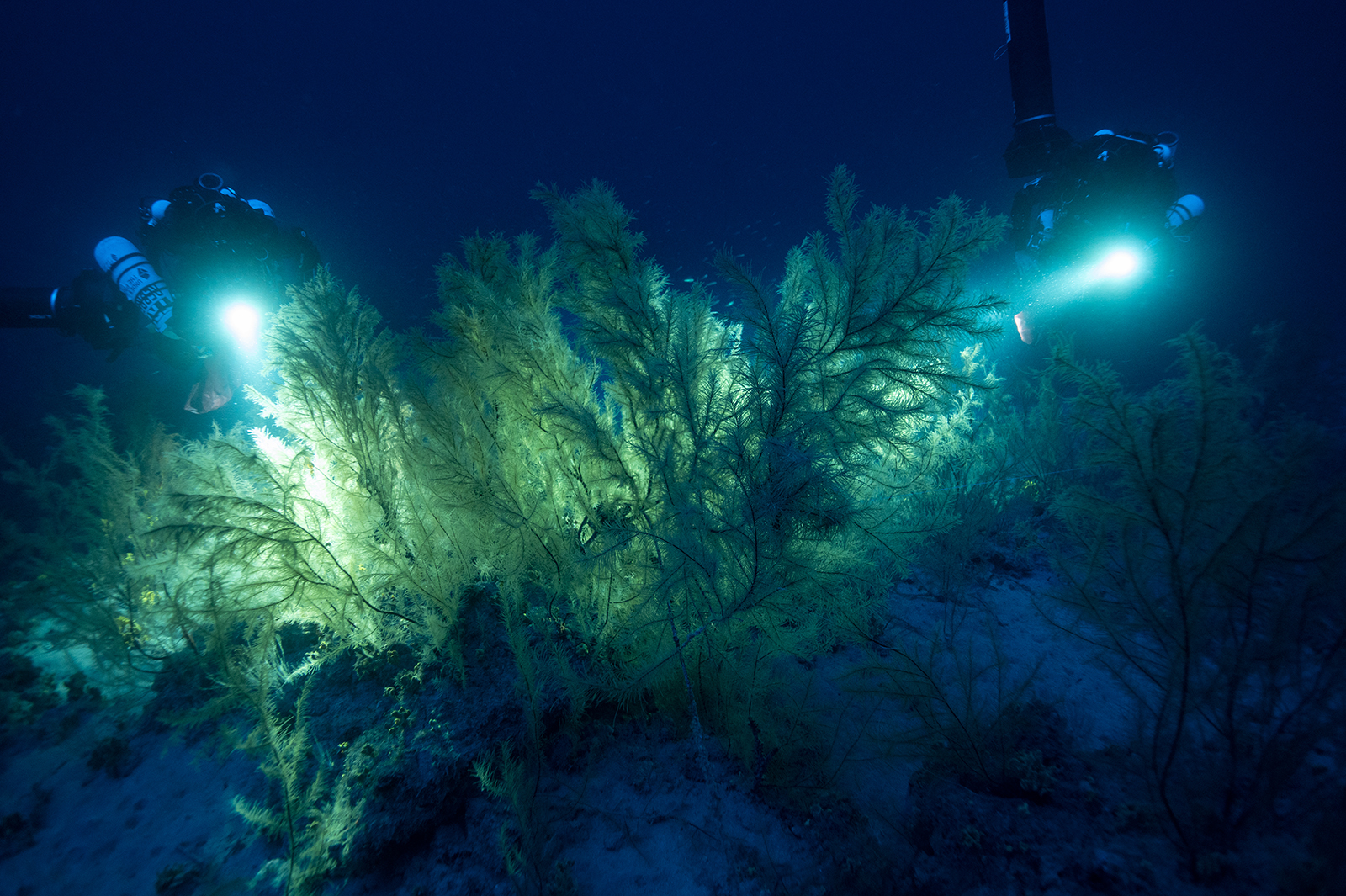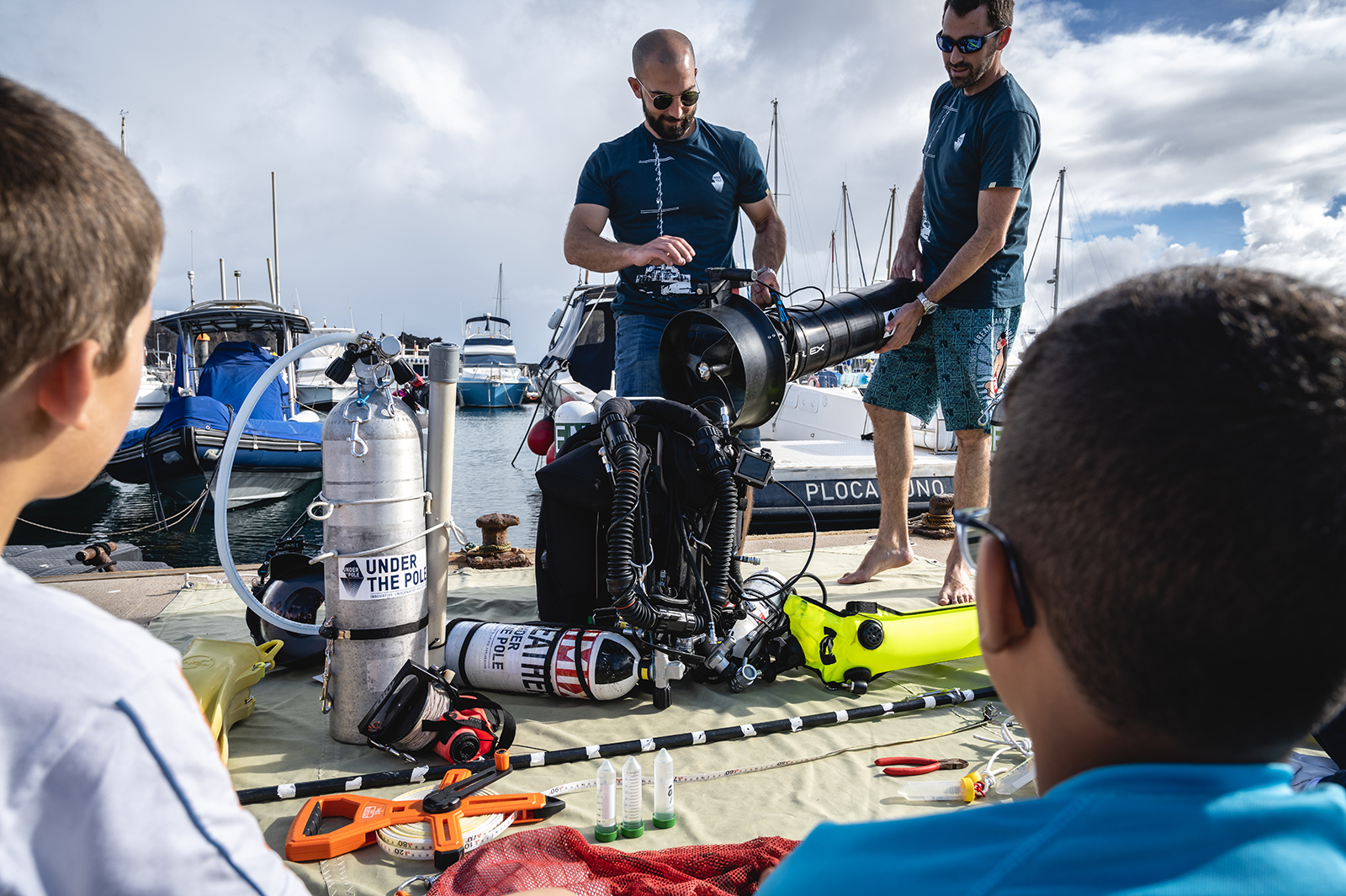The expedition, which has studied depths never before explored in the archipelago with autonomous diving, has got to know the extent and state of conservation of these ecosystems in the Canary Islands and determine their effect on marine currents
The exploration campaign of the international research project UNDER THE POLE - DEEP LIFE ended last Saturday, December 10th, the study of the underwater black coral forests in the deepest waters of the Canary Islands.
For two months, the scientific WHY sailing boat has traveled the waters of the Archipelago from east to west, visiting the islands of Lanzarote, Fuerteventura, Gran Canaria and El Hierro, in an expedition that has had the main collaboration of the National Center for Scientific Research (CNRS - France), and an international consortium including scientists from the Biodiversity and Conservation Research Group (BIOCON) of the Institute of Sustainable Aquaculture and Marine Ecosystems (ECOAQUA) of the University of Las Palmas de Gran Canaria (ULPGC).
During this period, thanks to the skill and team of expert divers from Under The Pole (UTP), researchers from the Gran Canaria research center have been able to investigate the distribution and functioning of underwater forests formed by black coral at depths never studied before, being able to cover a radius located between 70 and 200 meters deep, something that represents a definitive leap in the line of research initiated years ago by the ULPGC.
In the activities programmed by the DEEP LIFE project for 2022, which has included the Canary Islands, the researchers focused the first month of work on the island of Lanzarote, checking the 'good condition' of the existing underwater black coral forests in the nearby waters of Puerto del Carmen and its importance for the biodiversity of Macaronesia, serving as a refuge and breeding sites for some species of aquatic animals.

DEEP LIFE divers in Lanzarote's black coral forest. Author: ©Franck Gazzola / Under The Pole
In the second month, the expedition's objectives focused on the conservation status of other black coral forests in the archipelago, as well as trying to understand how they are connected to each other, trying to evaluate their resilience in order to plan conservation management actions on a regional scale, and confirming that they are able to modify marine currents.
In the particular case of El Hierro, UTP and University Institute ECOAQUA divers paid special attention to the study of recent volcanic eruptions on the island and their effects on the black coral forests, analysing the recolonization mechanisms of the specimens, and even measuring their resistance to these possible natural events.
DEEPLIFE is an international collaborative programme that will be in operation for 10 years, bringing together explorers and scientists from 12 countries, and aims to contribute to the protection of the ocean, and more specifically the marine forests formed by animals, through the expansion of knowledge.
In addition to the scientific activities programmed by the project, DEEP LIFE has also participated in divulgation and dissemination actions organised together with ECOAQUA, aimed at schools, vocational training centers and society in general. Among these actions, more than 300 students from the Lycée Français International de Gran Canaria were able to visit the WHY sailing boat while it was docked at the Port of Taliarte, during its stay in Gran Canaria, and discuss the project activities with the scientists and the rest of the crew.
For more information, please contact:
Beatriz Díaz – beatriz@mandarinacomunicacion.es – 620410871


